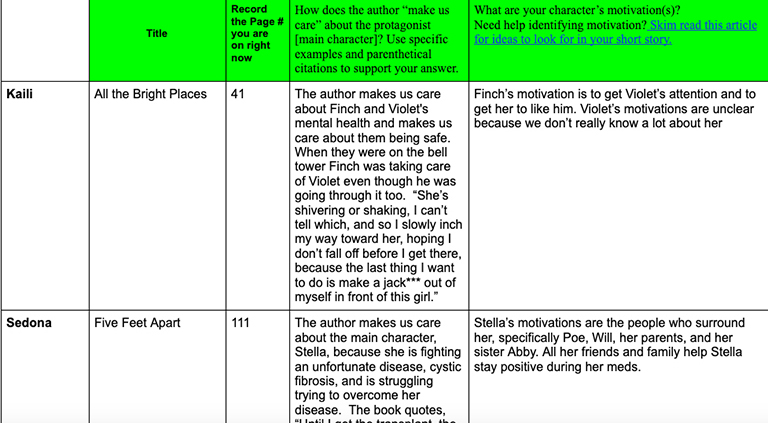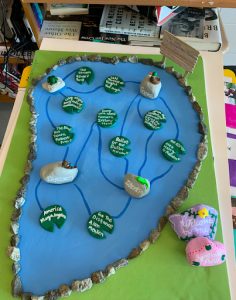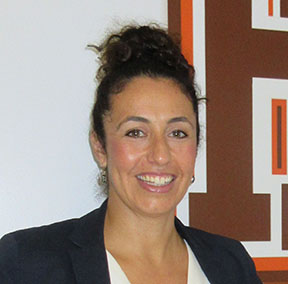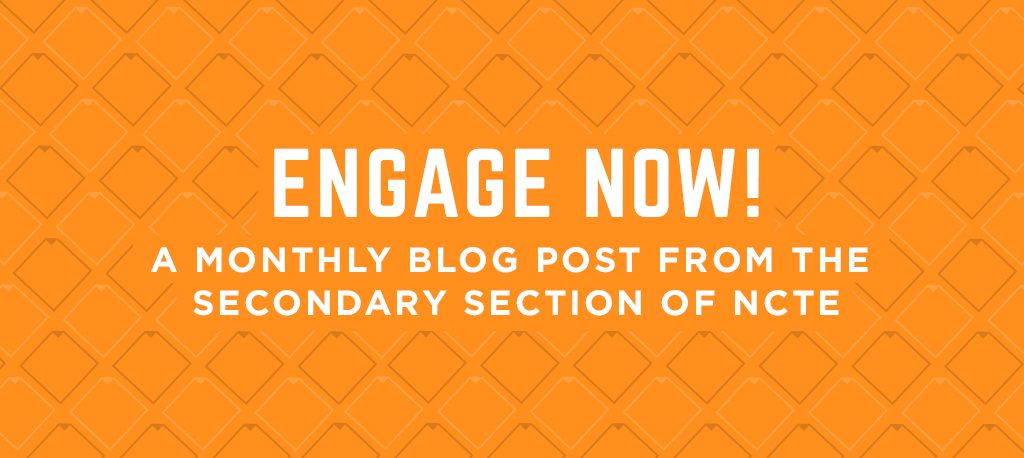From the NCTE Secondary Section Steering Committee
This post was written by NCTE member Valerie Mattessich, a member of the NCTE Secondary Section Steering Committee.
How to teach literacy—but really, how to teach anything—during a pandemic?!? That has been the question of the 2020–2021 school year. As this unprecedented year comes to a close, I have been reflecting with my English teachers on their practice and how it has been changed, deepened, refined and disrupted over the past 14 months. Of particular discussion has been the way in which teachers engaged students in literacy practices and skillbuilding through independent reading. Below, I highlight some of the benefits and practices that worked this year—and that therefore should definitely work in a non-pandemic year!
Independent Reading (IR) as Social Emotional Learning (SEL) Practice
In Virena Rossi’s Honors English I classes, a fifteen-minute reading session in IR books is followed by a formative 2-minute check-in with each student. For this check-in, Rossi keeps a page of notes on each student (using a blank roster), along with data such as their current page number and reactions to their books. This, which Rossi calls “one of the most fulfilling parts of my day,” has allowed her to connect with students both in person and virtually, getting to know them on a deeper level than if she had only proceeded with whole-class reading and writing experiences.
Learning what books students choose to read and why, their reading rates and reactions all combine to give the teacher a much better sense of who the students are, even as they are masked or behind a screen or avatar. With many people in general reporting feeling disconnected or alienated during these isolating pandemic times, with screens dominating our mode of communication and masks hiding our facial expressions, having the chance to connect one-on-one with students about choice reading breaks down barriers that are physically and figuratively in place this year.
Building a Community of Readers while Building Skills
Amy Maniscalco teaches College Preparatory English I students. These ninth-grade students arrived in high school wearing masks, knowing maybe 50 percent of their classmates in our regional high school district. Independent reading has served as a way not only for Maniscalco to get to know her students, as Ms. Rossi does, but also for her students to know each other via their reading choices and the connections they make. Using a shared class Google Doc (see image below), Maniscalco provides a way for students to see what others are reading, thus “advertising” books to each other, and to view their annotations/analysis/questions about the books as well. In so doing, students see another layer of their peers that may not be readily apparent or accessible in a socially distant, masked classroom environment.
A natural next step is the discussion board in Canvas, FlipGrid or Padlet, where students can further connect what they are reading to each other’s texts.

Reading Workshop = Syntopia!
Matt Morone, early adopter of a true workshop approach to literacy instruction in our high schools, typically caps his year with College Prep and Honors English II students with a culminating project that asks them to explore intertextuality, merging their independent reading with course texts to create meaning on a larger scale. See below for his “syntopia” project introduction and photos of recent student products.
Syntopia Project Introduction
Now that we’re in our final month of class, it’s time to put the texts we’ve studied “in conversation” with each other. Throughout history, people have organized connections—a process known as synthesis—visually; this has taken many forms: trees, diagrams, “mind maps,” etc. We will be borrowing a concept from literary scholar Mortimer Adler, who believed the best way to understand and appreciate great books was through a “syntopic” study; in other words, finding connections (SYNthesis) between the big ideas (TOPIC) of the texts.


By having students reflect upon their reading across texts in varied genres and forms (including film, meme, photography, art, and so on), and then connect them to each other, Morone is helping students to create meaning out of what unfortunately had the potential to be a “meaningless” school year, as students dealt with feeling unmoored and disconnected from school and each other.
Asking students to explicitly make connections shows them not only how much they have read and learned, but how texts speak to “big ideas” (e.g. war, love, spirituality)— ideas that become more important and are on display during challenging times in our lives.
 Valerie Mattessich is a veteran English teacher who now serves as Pascack Valley Regional High School District’s Supervisor of English, Art and Libraries. Valerie has long been a teacher-leader through the National Writing Project, previously at Rutgers and currently at Drew University, and also acts as president-elect of NJCTE and as a member of the NCTE Secondary Steering Committee. She has planned, implemented, and facilitated professional development workshops throughout the state and across the country. She has also published articles in Educational Viewpoints, English Leadership Quarterly, and New Jersey English Journal; her classroom and teaching strategies were featured in Kristen Turner and Troy Hicks’s book Argument in the Real World.
Valerie Mattessich is a veteran English teacher who now serves as Pascack Valley Regional High School District’s Supervisor of English, Art and Libraries. Valerie has long been a teacher-leader through the National Writing Project, previously at Rutgers and currently at Drew University, and also acts as president-elect of NJCTE and as a member of the NCTE Secondary Steering Committee. She has planned, implemented, and facilitated professional development workshops throughout the state and across the country. She has also published articles in Educational Viewpoints, English Leadership Quarterly, and New Jersey English Journal; her classroom and teaching strategies were featured in Kristen Turner and Troy Hicks’s book Argument in the Real World.
It is the policy of NCTE in all publications, including the Literacy & NCTE blog, to provide a forum for the open discussion of ideas concerning the content and the teaching of English and the language arts. Publicity accorded to any particular point of view does not imply endorsement by the Executive Committee, the Board of Directors, the staff, or the membership at large, except in announcements of policy, where such endorsement is clearly specified.

